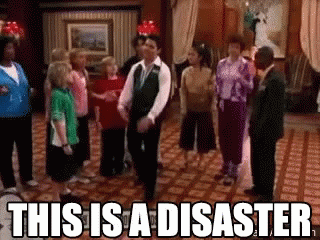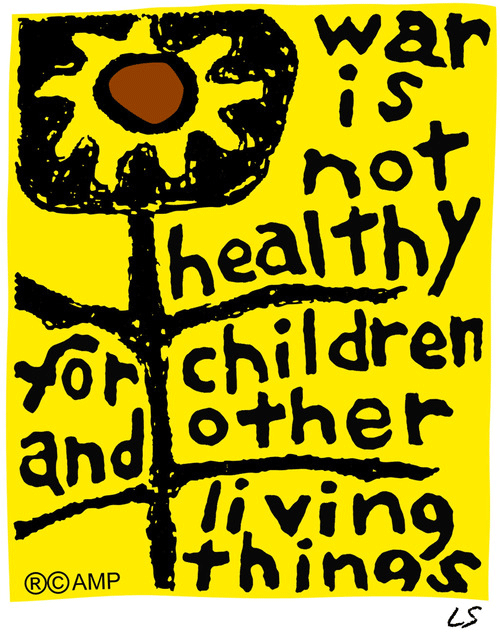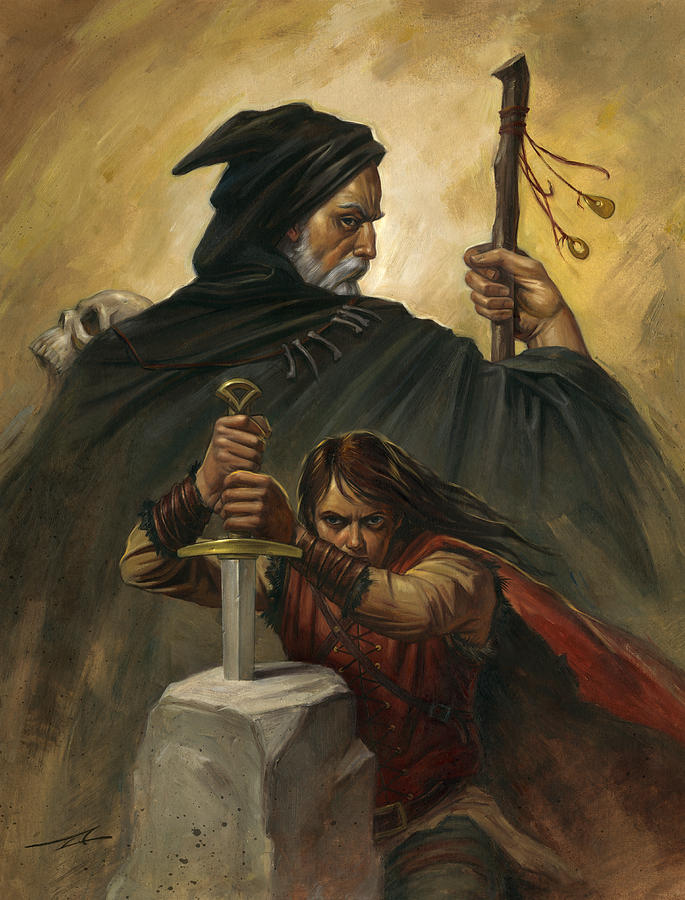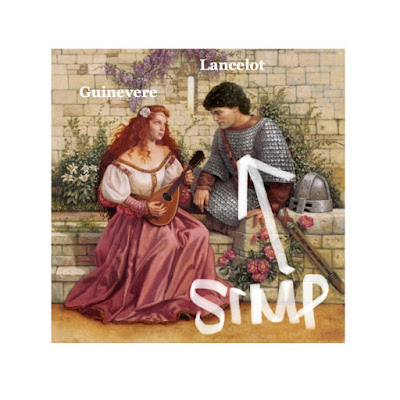Saturday, April 11, 2020
Just Throw the Sword Bedivere
I'd love to know what's going on inside Sir Bedivere's mind right about now. His fellow knights are all but extinguished and his king is wounded so much so that he can't walk by himself. So, naturally, he brings his king to cover away from the fight, which is fine. These actions all make it seem like Bedivere truly does care for his king, however, when Arthur asks one request Bedivere he seems to blatantly disobey his king. I would like to know why. Was it because he actually despised his king and the possibility of the other knights of the round table dying was just too much? Or was is the sword talking to him telling him to keep it? Tennyson writes that "He gazed so long That both his eyes were dazzled as he stood, This way and that dividing the swift mind, In act to throw: but at the last it seemed Better to leave Excalibur concealed" (Tennyson 58). Eventually Bedivere ends up completing the task (3rd try) however I still want to know he directly went against his king's dying wishes.
Friday, April 10, 2020
Just.... Why?
Honestly I have so many questions about this reading but the two that stick out the most to me are: Why was Arthur okay with, and honestly kind of supportive, of Lancelot having an affair with Guinevere? And Secondly, If he knew Mordred was going to try to kill him and was plotting against him, why did he listen to him so much? Wouldn't it have just been easier if he had banished him or something?
Thursday, April 9, 2020
Camelot Crumbles
Not to bring up politics but…I relate this ending scenario
of Camelot to today’s political problems. Today I see our political world as
broken, quarrelsome, and a complete mess. Funny how today, we can still easily
relate to the medieval times of King Arthur and the Round Table.
From Malory’s excerpt explaining the downfall of Camelot,
their opposing views and sides that each knight choses to be on (Lancelot or
King Arthur) creates a large dispute. This dispute broke the world which they
all once thrived in. Sir Gawain says to King Arthur, “My good uncle, it was my
pride and my stubbornness that brought all this about, for had I not urged you
to war with Sir Lancelot your subjects would not now be in revolt” (Malory 519).
The anger and opposing opinions lead to the death of many important characters
that we have been following.
Also, like our political world today, people of higher power—the
knights of the Round Table—betray their position in which they serve and create
worse situations. Sir Modred should have never betrayed his own father like he
did.
In my opinion, I believe Camelot will never come back from
such a tragedy due to the destruction in their system and the loss of their
King.

The Frusteration
Why the hell did Sir Bedivere not listen to King Arthur, two times. It's stuff like this that frustrates me about these stories; they stress the importance of something so much and so many times, like the wits of Arthur or the loyalty and chivalry of his knights, then those concepts are turned in their heads, but not in a fun 'plot-twisty' kind fo way. Like Lancelot's affair with Guinevere; that turned out to be fun for no one. But even smaller examples like this, Sir Bedivere not listening to Arthur's literally DYING wish, two times! Because he doubts hi wits?? :"The king is sick and knows not what he does" (Tennyson 96). Throwing the sword into the lake is utterly crucial, and it almost didn't happen to Sir. Bedivere's 'slip-up'. Annoying..
Arthur thinks about stuff
In Once and Future King (Candle in the Wind), there are a few points in the final chapter that spoke to me in particular in terms of Arthur's character growth. Within the chapter, there are a few points in which Arthur starts to really reflect on everything that has happened. Arthur says things such as "Why do men fight?" (630). On top of this, he also speaks about "What Distinguished between Doing and Not Doing" (631). I find these types of character arcs to be some of the most interesting ideas that have been explored. Instead of being conventional and allowing Arthur to solve everything with his sword, it has to be expected that there are some problems he should or should not solve. Another line that stuck out to me was "Perhaps war was due to fear; to fear of reliability...there was always danger from everything outside of the individual." (633). I think that Arthur's contemplation of war is an interesting facet of his character within the confines of this story. Regardless, this whole chapter held my interest the most as a result of the direction it was taken in. I think that giving Arthur the time to contemplate war is a cool and different direction for a character that is typically all about war.


Soap Opera on Steroids
As I was reading "The Candle in the Wind", a lot of the events that occurred were like a soap opera on steroids. Every time something happened, one party tried to respond in extravagant fashion. The first example of this is when Arthur has a "bad feeling" about his son Mordred and his immediate response is to put all babies of the same age out to sea! To me, there must have been a less intense way of solving this issue. Another example is the way the whole adultery situation was handled. It seemed a little bit excessive to bring a crew of 14 knights to try to catch a woman cheating. It also makes me wonder how Lancelot managed to kill Agravaine and escape unharmed, especially with Mordred there, whom Lancelot has sworn to never harm.
Chapter 8 reminded me of all of the movies that depict violent criminals finally being captured only to be rescued by their clan from captivity, despite the imminent threat of escape. Lancelot was almost guaranteed to try to rescue Guenever, but there still wasn't enough in place to halt his rescue attempt.

Chapter 8 reminded me of all of the movies that depict violent criminals finally being captured only to be rescued by their clan from captivity, despite the imminent threat of escape. Lancelot was almost guaranteed to try to rescue Guenever, but there still wasn't enough in place to halt his rescue attempt.

So Many Questions
In the final chapter of The Once and Future King, Arthur is contemplating crazy big concepts that philosophers have questioned for many years. As I was reading his thought process of these issues my mind was exploding. He starts to think that "perhaps man was neither good nor bad, was only a machine in an insensate universe-his courage no more than a reflex to danger, like the automatic jump at the pin-prick" (630). He continues to ask questions like "why do men fight?"(630) and "what was right? and what was wrong?" (631). These questions begin to topple over one another and spiral into issues that even Arthur lacks control of. These issues have been around way before Arthur was King of England, but Arthur decides to truly think about these problems at the end of his life. When I read this it reminded me of when people die and they start contemplating their life and its purpose. Isn't it interesting that as humans we do this right at the end of our life when we can no longer make any changes? I think this is why Arthur passes down his story to the young boy Tom. Arthur had so much hope for his country, it just did not work out as he planned. It is a bittersweet ending, no one wants to see Arthur go, but we all knew it was going to happen eventually.
Simping in King Arthur
“Sir
Gawain, while you stand on your two feet I will not gainsay you; but I will
never strike a knight who has fallen. God defend me from such dishonor!” (494).
I took this quote from a fight scene between Sir Gawain and Lancelot, and I
thought about juxtaposing the two as the most respected knights of the round
table. This is another situation where I said to myself “wow, how chivalrous of
Lancelot! He is truly embodying what it means to be a knight… once again. He’s
really making Sir Gawain look pretty shitty!” But I had to stop myself and
think a bit. Sir Gawain, as we’ve seen in The Green Knight, represented undying
loyalty and what it means to be humble. He also has been very adamant with his
religious chastity, though there has been temptation. Lancelot, as we have seen
time and time again, represents unfaltering chivalry and basically everything
else. But, Lancelot’s love for Guinevere is not very knight-like. Both knights embody
what it means to be a knight, but their ideas on courtly love seem very, very
different. Lancelot is supposed to be the knight that embodies it all, and
therefor he is the best. In these characters I think that we can definitely see
the clash between knighthood and courtly love.
Warning not to fight
In Arthur's vision from Sir Gawain, he tells him not to go into battle as it will cost him his life. Why do you think that Arthur still gave the order to fight as soon as a sword was unsheathed? Do you think that it was actually an accident that the sword was unsheathed or do you think that it was a ruse from Modred to pressure Arthur into a battle?
What will happen to the triangle?
"...That two knights with malice in their hearts first plotted the downfall of Sir Lancelot and Queen Gwynevere; and by those plots brought about the destruction of King Arthur's Court." I know...I know the first sentence of the reading...really? Just let me explain. This is the first time I have read the beginning of a reading that we have been assigned and been genuinely excited to find out what happens! The author did a very good job of really drawing in the audience with the use of this very first sentence. What will happen to Arthur's Court? How will this effect the relationship triangle of Arthur, Lancelot, and Gwynevere? All questions that the reader can ask his or herself after reading only the first sentence of this chapter.
The End of the World huh?
"But now the Round Table is dissolved
Which was an image of the mighty world,
And I, the last, go forth companionless
And the days darken around me, and the years,
Among new men, strange faces, other minds." (233-237)
This quote might be somewhat insignificant, but it struck me as the line that really put the nail in Arthur's coffin. Bedivere mentioned the end of the world, but it's not the kind where the actual planet explodes or catches on fire. Rather the world as he knows it is going to change. From this point forward, everything is going to change. Everything.

Which was an image of the mighty world,
And I, the last, go forth companionless
And the days darken around me, and the years,
Among new men, strange faces, other minds." (233-237)
This quote might be somewhat insignificant, but it struck me as the line that really put the nail in Arthur's coffin. Bedivere mentioned the end of the world, but it's not the kind where the actual planet explodes or catches on fire. Rather the world as he knows it is going to change. From this point forward, everything is going to change. Everything.

Wednesday, April 8, 2020
Merlin The Mystery
One character that really confuses me during this reading is Merlin. What role does he play in the kingdom? Is he Arthur's advisor? Does he actually want the throne and Arthur to be a figurehead? These are some of the questions I'd like to know the answers too.


Defining Justice
"The only way I can keep clear of force is by justice. Far from being willing to execute his enemies, a real king must be willing to execute his friends... It is a king's business to prevent bloodshed if he can, not to provoke it" (White 550-1).
Arthur has kept to his initial ideas when he first thought of the Round Table, but it's also forcing him to execute the people he loves. True justice wouldn't play favorites. Though he is doing his best to prevent bloodshed, Lancelot's rebellion against Arthur's justice creates it. And everyone is miserable.
Arthur has kept to his initial ideas when he first thought of the Round Table, but it's also forcing him to execute the people he loves. True justice wouldn't play favorites. Though he is doing his best to prevent bloodshed, Lancelot's rebellion against Arthur's justice creates it. And everyone is miserable.
Tuesday, April 7, 2020
Not like they used to be
Honestly Sir Bedivere bothered me so much in this poem. I mean your King is dying before your eyes and you cannot follow his simple orders?? King Arthur orders him to toss Excalibur into the waters but he does not do it. Not only does he not follow orders once, but twice! Even after the first time King Arthur called him out, he tried again. Sir Bedivere no longer seems like a knight. At one-point Sir Bedivere tries to make an excuse for why he will not throw Excalibur into the lake, "The King is sick, and knows not what does" (line 97). Sir Bedivere tries to justify his actions by placing blame on his King. I think that Sir Bedivere not following what King Arthur ordered him to do shows that the time of knights is over. No longer do knights follow a king. The “code of conduct” a knight is required to follow seems to no longer apply. I think that knights no longer hold the power they once used to. If anything, their credibility is gone. I mean King Arthur trusted Sir Bedivere to throw away Excalibur and he could not follow it. I think it shows that Kings do not have the power that they once had.
Sunday, April 5, 2020
So... what are we fighting for?
"There is no excuse for war, none whatever, and whatever the wrong which your nation might be doing to mine -short of war- my nation would be in the wrong if it started a war so as to redress it." (White 233).
I had no clue such progressive ideas would come up in King Arthur! This is making me wonder what kind of a role does Merlin play in this tale with King Arthur? What is he teaching him? And why is it so important?
Subscribe to:
Comments (Atom)




